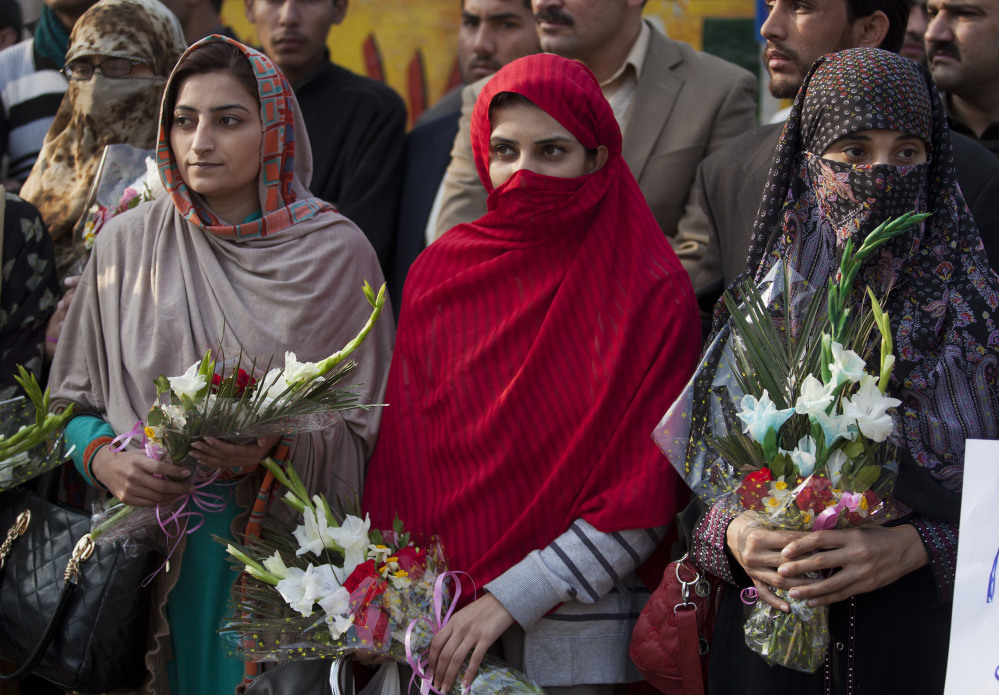PESHAWAR, Pakistan — Pakistan’s government lifted a moratorium on executing convicted terrorists Wednesday and sought Afghanistan’s help to find the mastermind of Tuesday’s murderous attack on an army-run school in the northern city of Peshawar, as the death toll rose to 144.
There was a national outpouring of grief, shame and anger at the attack, in which 132 schoolchildren, many of them the sons of military officers, were killed.
Three more school staff members succumbed to their wounds at Peshawar’s Lady Reading Hospital, as staff there and at a military hospital in Rawalpindi fought to save the lives of dozens of critically injured victims, repeatedly issuing calls to the public to donate blood.
The leaders of Pakistan’s political parties set aside bitter rivalries at a conference in Peshawar, called by Prime Minister Nawaz Sharif, to develop a consensus on legislation dealing with the trials and convictions of terrorists, an issue that successive governments have failed to settle since the Pakistani Taliban launched an insurgency in 2007.
Sharif set the agenda by announcing that he had lifted a six-year moratorium on capital punishment, which a previous administration had put into place under the human rights terms of a preferential trade agreement with the European Union.
“The biggest issue right now is that of hardened terrorists who’ve been arrested … when they are not convicted, they return to their havens and carry out further acts of terror. Until and unless this issue is resolved, we cannot resolve the terrorism problem,” Sharif said.
There are about 8,000 convicts on death row in Pakistani prisons, one of the world’s largest such populations, including more than 3,000 terrorists.
Police, prosecutors and judges who handle terrorist cases have been threatened and murdered, making most reluctant to pursue such cases. And convictions have been difficult to secure.
Pakistan’s democratic constitution requires that defendants’ lawyers have access to prosecution evidence,potentially exposing classified information.
Pakistan’s ceremonial president, Mamnoon Hussain, responded immediately Wednesday by rejecting mercy petitions filed by eight convicted terrorists in 2012, and his office ordered the administrators of the prisons where they’re being held to carry out the executions, the Pakistani media reported.
India, Pakistan’s longtime foe, held two minutes of silence in Parliament and schools.
Send questions/comments to the editors.



Success. Please wait for the page to reload. If the page does not reload within 5 seconds, please refresh the page.
Enter your email and password to access comments.
Hi, to comment on stories you must . This profile is in addition to your subscription and website login.
Already have a commenting profile? .
Invalid username/password.
Please check your email to confirm and complete your registration.
Only subscribers are eligible to post comments. Please subscribe or login first for digital access. Here’s why.
Use the form below to reset your password. When you've submitted your account email, we will send an email with a reset code.